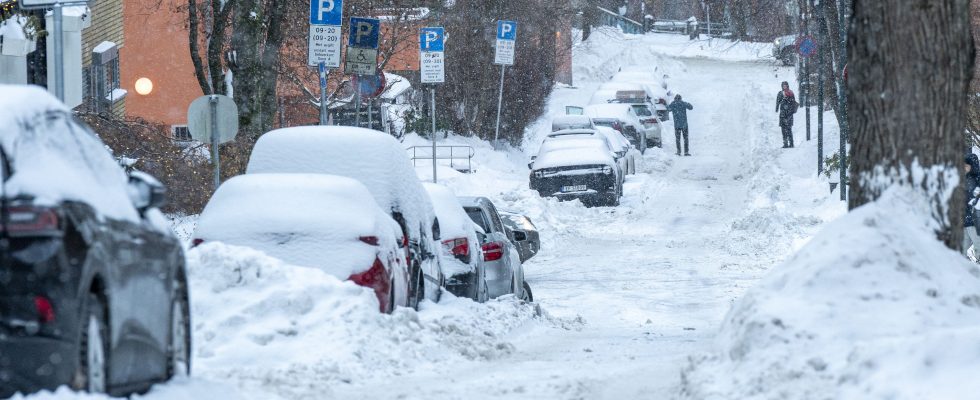After experiencing the hottest year in its history, Northern Europe has broken cold records in recent days. Never has the Norwegian capital experienced temperatures as low as the night from Friday to Saturday January 6, 2024: for the first time in its history, the city of Oslo experienced several hours below the -30°C mark. From 3 to 4 a.m., the Bjørnholt forest station in the north of the capital even recorded -31.1°C.
In the far northern Sámi lands, in Kautokeino, the thermometer fell to -41.6°C overnight. Schools remained closed in several municipalities in the south of the country at the end of the week due to difficulties in traveling after heavy snowfall. Motorists in the region were also asked by the police not to drive, and all trains between Oslo and Kristiansand (south) were canceled.
Up to -43°C degrees in Sweden
The Norwegian case is not isolated: a wave of “arctic cold” is hitting northern Europe, caused by a powerful anticyclone from Russia. And it is Sweden which presents the most impressive figures. A temperature of -43.6°C was recorded in the north of the country on Wednesday January 3. This is the lowest temperature recorded in 25 years in the territory for the month of January.
In Finland, the country is also brought to a standstill by historically low temperatures: a new cold record was broken in Enontekiö (north-west) where the thermometer showed -42.1°C, while in Helsinki the Temperatures are around -15°C during the day and -20°C at night. Rail traffic is also experiencing numerous disruptions, and several hundred people have seen their water pipes freeze in the city of Tampere, in the southwest. In Denmark, extreme weather conditions also caused thousands of cars to get stuck in the snow for several tens of kilometers at the end of the week, sometimes leading to the intervention of the army to rescue motorists.
The wave will hit France from Sunday
The climatic phenomenon will not remain confined to the northern borders: nicknamed “Moscow Paris” by French meteorologists, this cold wave should hit France from this Sunday, January 7. On average, the atmospheric current which is responsible causes a strong cold spell reaching France every three to four years. It is impossible for the moment to predict the intensity and duration of the phenomenon, but it should be the coldest episode since winter 2018.
“Monday and Tuesday, the maximums will rarely exceed 0°C over a good eastern half of the country, up to the Center and Ile-de-France region,” explains Météo France. Frosts are expected to become widespread across all regions of the northeast from Monday to Wednesday. The feeling of cold will also be reinforced by an almost polar wind, with gusts which will exceed 100 km/h in places. Temperatures, however, will not drop below -15°C at night.
In Lyon (Rhône), where the temperature rose to 14°C on Thursday January 4, the thermometer should drop to -6°C next week. Up to -5°C are expected in Strasbourg (Bas-Rhin), -4°C in Paris. The cold could reach as far as the south-east, with a risk of snow in Provence-Alpes-Côte d’Azur and Languedoc-Roussillon.
